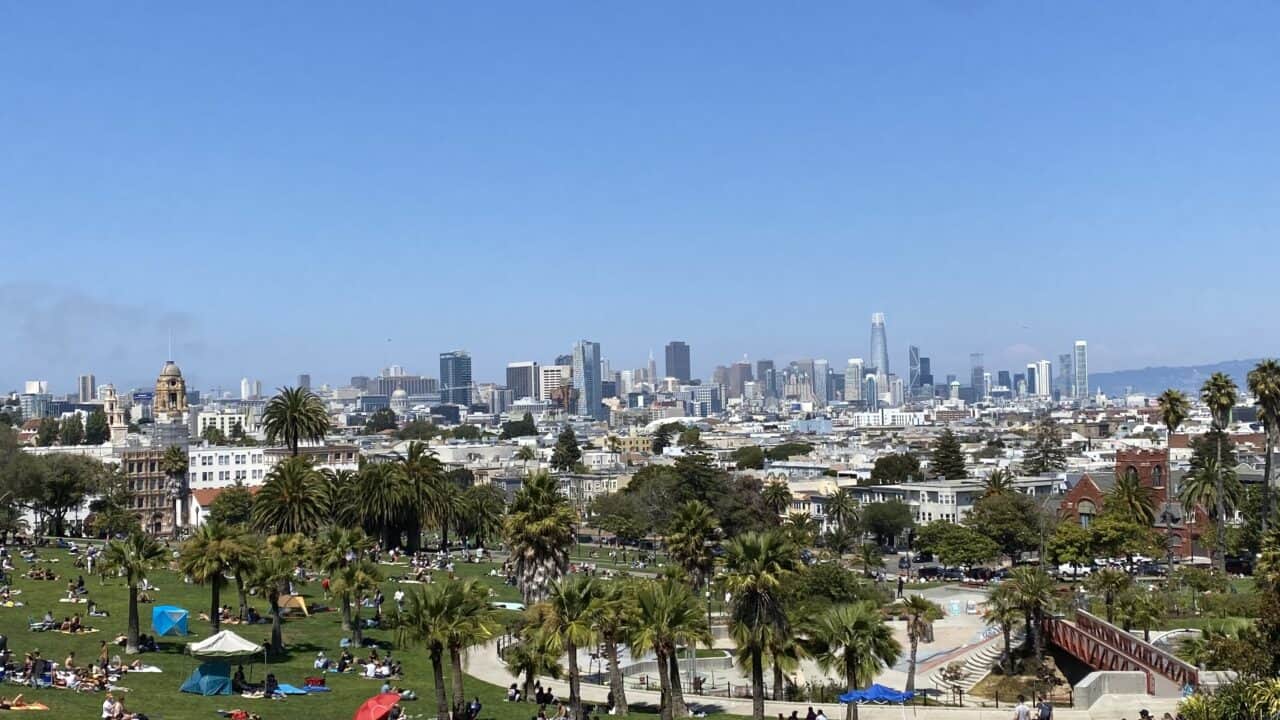 San Francisco view from Mission Dolores park.
San Francisco view from Mission Dolores park.
California’s social and fiscal woes are coming to a head, and its residents know it. Since 2020, the Golden State has lost 800,000 residents, which is equal to the entire population of San Francisco. The state continues to bleed cutting-edge tech companies like Tesla, Oracle, and Starlink. Meanwhile, low-tax states are reaping hundreds of billions of dollars’ worth of talent, capital and intellectual property from California’s exodus.
It is not difficult to see why. The state has one of the highest tax burdens in the country, easily outstripping rivals like Texas and Florida, while also hosting the nation’s largest and densest homeless population. These issues feed off each other; California spends an unmatched $42,000 per resident in homelessness relief, yet their unhoused population has doubled in the past five years alone.
Meanwhile, California Governor Gavin Newsom continues to double down on his failed social service agenda, including the successful passage of a pair of homelessness prevention bills on September 15th. The first one, AB 531, approved an additional $6.38 billion loan for 10,000 new beds, and the second, SB 326, gives the state more control over billions of tax dollars earmarked for mental health that have traditionally been managed by counties. Newsom’s administration will use this authority to mandate that 30% of all mental health funding goes directly towards housing subsidization costs.
L.A. County, which has 75,000 homeless people living in a scattered series of vast encampments, cannot afford an expensive restriction on how they allocate their social welfare funds. The Los Angeles Times explains that the bill would force the county to spend even more money on their stupendously expensive public housing program, where the average unit price is $837,000, instead of relatively cost effective emergency response programs. The county needs to prioritize its basic task of cleaning its streets, not prohibitively expensive housing subsidization that will only attract more homeless to the City of Angels.
There is, however, good news: California voters are finally beginning to push back against their political leaders’ fiscal recklessness. Recently, petitioners put the Taxpayer Protection and Government Accountability Act on the state’s 2024 ballot. The act would give voters the right to veto any and all local tax increases with a simple majority vote and requires lawmakers to be transparent about where money will be spent before they pass tax increases. It also protects Proposition 13, California’s 1978 constitutional amendment that protects property owners from excessive property taxes, which the state’s progressives are trying to kill. Governor Newsom, petrified at the prospect of Californians paying one cent less in taxes, has tried to use a backdoor legal loophole to block Californians from voting on the act. The measure is still on the ballot, however, giving the state’s much-abused taxpayers a very real glimmer of hope.
San Francisco’s politics are trending in a similarly promising direction. Mayor London Breed has recently walked back her extreme anti-police stance, promising to increase funding for law enforcement and require drug tests for city welfare recipients. Breed claims the her pivot is merely a reasonable response to a high-profile open-air drug market, but critics have called her retreat a belated rear-guard action.
These critics, especially the spate of increasingly popular conservative challengers for mayor, argue that the last 5 years of Mayor Breed’s ultra-progressive policies are a main reason for the surge in violence and lawlessness across San Francisco. Her retreat from many of her most ludicrous positions – such as a decision in 2020 to slash police funding by $120 million – may simply be a calculated political maneuver, designed to save her hide come Election Day 2024.
Either way, this rapid change in San Francisco’s discourse surrounding the police and drug policy reveals a population that is increasingly fed up with the irresponsible governance of Mayor Breed and her progressive allies. It seems that the city’s electorate, which is now fully bearing the consequences of its own radical decisions, is finally poised to learn from its mistakes.
In Los Angeles, meanwhile, hard-nosed prosecutor Jonathon Hatami, who built his career fighting child abuse, is gathering momentum against the progressive District Attorney George Gascón. Hatami has blasted Gascón, who is funded by George Soros, for his radical anti-police rhetoric and failure to sufficiently prosecute violent crimes.
Further down the coast, San Diego’s progressive mayor Todd Gloria is facing a growing wave of disenchantment and conservative opposition. Former Marine officer and current San Diego police officer Larry Turner, who is running against Gloria as an independent, has enjoyed a groundswell of support. His message that the city needs stronger homelessness policy is increasingly striking a chord with a city that is fed up with the sprawling homeless encampments and dysfunctional authorities.
California has a long way to go before it can reclaim its historical reputation for freedom and innovation. Californian conservatives still face enormous headwinds from the state’s entrenched big-government interests, and its major cities are still run by ultra-progressive councils. With luck, however, this year’s fledgling positive developments may mark a turning point in the stagnant state’s battle for political liberty and economic revival.

